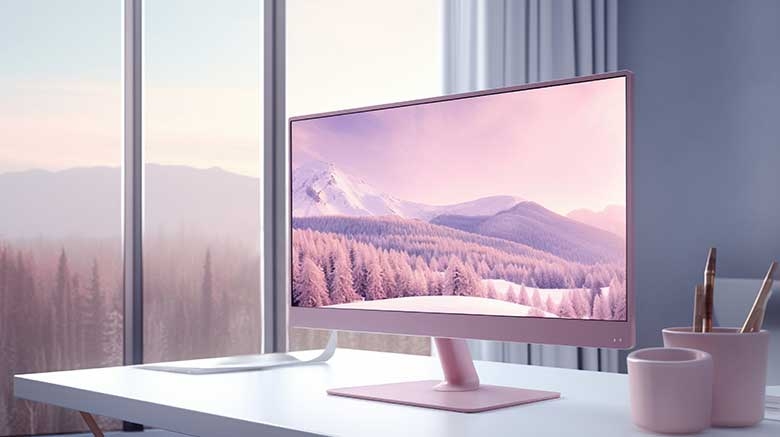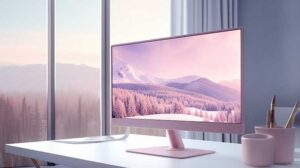The Best Desktop Computer Monitor for Seniors in 2024: A Comprehensive Guide
Are you a senior looking for the best computer monitors, or shopping for an elderly loved one? Choosing the right monitor can significantly enhance the computing experience for older adults. This guide will help you find the best desktop computer monitors for seniors in 2024, focusing on readability, eye comfort, and ease of use. Additionally, we will cover options like the best budget gaming monitor for seniors who enjoy gaming.
Disclaimer: Brainy Beaver Online Computer Support is not sponsored by any of the computer monitor brands mentioned in this article, and this article is not monetized in any way. Our recommendations are based solely on our own online research, and a desire to help seniors find the best monitor for their needs.
All recommended monitors are available on Amazon.com for your convenience.
Key Features to Look for in the Best Computer Monitors for Seniors
- Large screen size (27 inches or larger)
- High resolution for crisp text and images
- Adjustable stand for ergonomic positioning
- Blue light filters to reduce eye strain
- Wide viewing angles for flexibility
- Easy-to-use controls and on-screen menus
- Basic monitor: Affordable and suitable for essential tasks like office work and casual video watching
Our Top Picks for Senior-Friendly Desktop Monitors in 2024
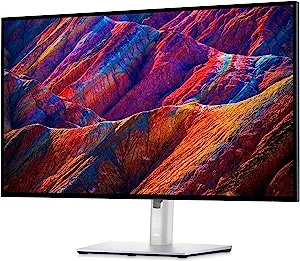
1. Dell UltraSharp U2723QE: Best Overall for Seniors
Why seniors love it:
Crystal-clear 4K display, USB-C connectivity, and considered the best monitor for various needs
Specifications:
- Screen size: 27-inch
- Resolution: 4K (3840 x 2160)
- Panel type: IPS
- Connectivity: HDMI, DisplayPort, USB-C Ports
Pros and Cons:
- Pros: Sharp text and images, wide viewing angles, versatile connectivity
- Cons: Higher price point, may require scaling for some users
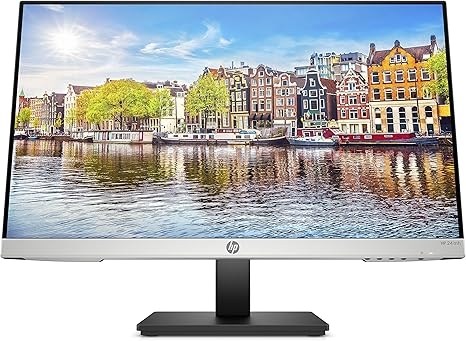
2. HP 24mh FHD Monitor: Best Budget Monitor Option
Why seniors love it:
Affordable, built-in speakers, multiple ports, making it a great budget monitor
Specifications:
- Screen size: 23.8-inch
- Resolution: 1080p (1920 x 1080)
- Panel type: IPS
- Connectivity: HDMI, DisplayPort, VGA
Pros and Cons:
- Pros: Good value for money, clear visibility, versatile connectivity
- Cons: Lower resolution compared to 4K options, smaller screen size
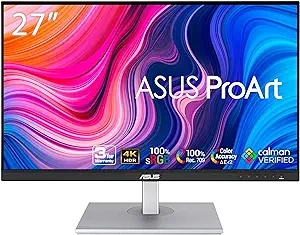
3. ASUS ProArt PA279CV: Best for Color Accuracy
Why seniors love it:
Excellent color reproduction, ergonomic stand, ideal for video editing
Specifications:
- Screen size: 27-inch
- Resolution: 4K (3840 x 2160)
- Panel type: IPS
- Connectivity: HDMI, DisplayPort, USB-C
Pros and Cons:
- Pros: Superb image quality, adjustable stand, USB-C connectivity
- Cons: Higher price, advanced features may be unnecessary for some users
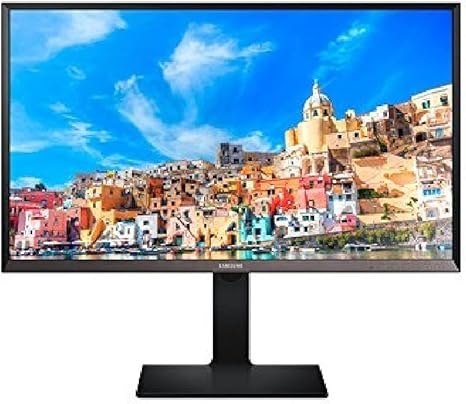
4. SAMSUNG SyncMaster S32D850T: Best Large Screen Option
Why seniors love it:
Spacious 32-inch screen, high contrast ratio, versatile as a PC monitor
Specifications:
- Screen size: 32-inch
- Resolution: 1440p (2560 x 1440)
- Panel type: VA
- Connectivity: HDMI, DisplayPort, Dual-Link DVI
Pros and Cons:
- Pros: Large screen real estate, deep blacks, good for multitasking
- Cons: Lower pixel density than 4K options, may be too large for some desks
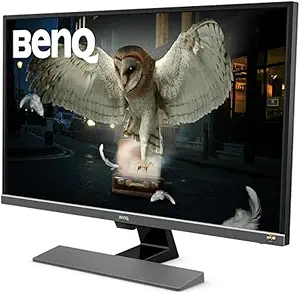
5. BenQ EW3270U: Best for Eye Comfort
Why seniors love it:
Adaptive brightness, blue light filter, large 4K screen, and two USB-C ports enhance the versatility and convenience of the BenQ EW3270U.
Specifications:
- Screen size: 32-inch
- Resolution: 4K (3840 x 2160)
- Panel type: VA
- Connectivity: HDMI, DisplayPort, USB-C
Pros and Cons:
- Pros: Excellent for reducing eye strain, high contrast, large screen
- Cons: May be overwhelming for users new to 4K, premium price
How to Choose the Right Monitor for a Senior
- Consider their visual needs and any impairments
- Assess the available space for the monitor
- Determine their primary computer uses (reading, video calls, photo viewing)
- Evaluate budget constraints
- Check compatibility with their existing computer setup
- Consider a portable monitor for added flexibility and ease of use in various environments
Tips for Setting Up a Senior-Friendly Monitor
- Position the monitor at eye level to reduce neck strain
- Adjust brightness and contrast for comfortable viewing
- Enable blue light filters, especially for evening use
- Increase text size in the operating system settings if needed
- Consider using a monitor arm for easy adjustments
- Ensure the monitor has multiple USB ports for connecting peripherals easily
Choosing the right desktop monitor can greatly improve a senior’s computing experience. Whether you opt for the crystal-clear Dell UltraSharp U2723QE or the budget-friendly HP 24mh, prioritize features that enhance readability and comfort. Remember to consider the individual’s specific needs, preferences, and existing setup when making your selection.
Frequently Asked Questions (FAQ)
Q1: Why is monitor size important for seniors?
Larger monitors (27 inches or more) can make text and images easier to see, reducing eye strain and improving overall comfort.
Q2: What resolution is best for senior-friendly monitors?
While 4K offers the sharpest image, 1080p or 1440p can be sufficient and more budget-friendly. The key is finding a balance between clarity and ease of use.
Q3: Are curved monitors good for seniors?
Curved monitors can reduce eye strain for some users, but they may take some getting used to. It’s best to try one in person before purchasing.
Q4: How important is blue light filtering for seniors?
Blue light filters can help reduce eye strain and improve sleep quality, especially for seniors who use computers in the evening.
Q5: Can seniors benefit from touchscreen monitors?
Touchscreen monitors can be intuitive for some seniors, particularly those familiar with smartphones or tablets. However, they’re not necessary for everyone and may add to the cost.
Q6: What connectivity options should seniors look for in a monitor?
HDMI and DisplayPort are standard. USB-C can be convenient for connecting newer devices. Multiple ports offer more flexibility.
Q7: Are built-in speakers important in monitors for seniors?
Built-in speakers can reduce clutter and simplify setup, but external speakers often provide better sound quality.
Q8: How often should seniors replace their computer monitors?
Monitors can last 5-10 years, but upgrading every 3-5 years can ensure access to newer, more comfortable technologies.
Q9: Can using a large monitor replace the need for reading glasses?
While larger monitors can help, they’re not a substitute for proper vision correction. Seniors should maintain regular eye check-ups.
Q10: Are gaming monitors suitable for seniors?
Gaming monitors can work well due to their high refresh rates and reduced motion blur, but they may have unnecessary features that increase the price.
Have you helped set up a computer monitor for a senior? What features did you find most beneficial? Share your experiences or ask questions in the comments below – your insights could be invaluable to others in similar situations!

